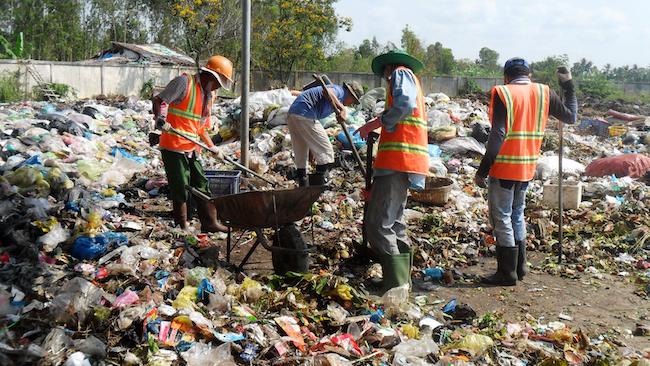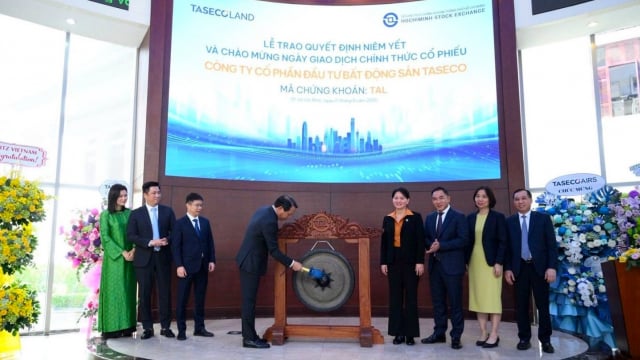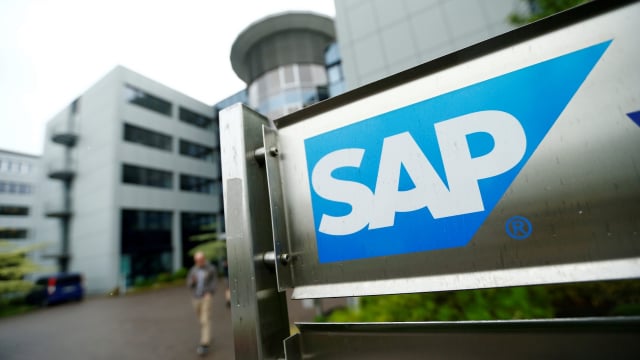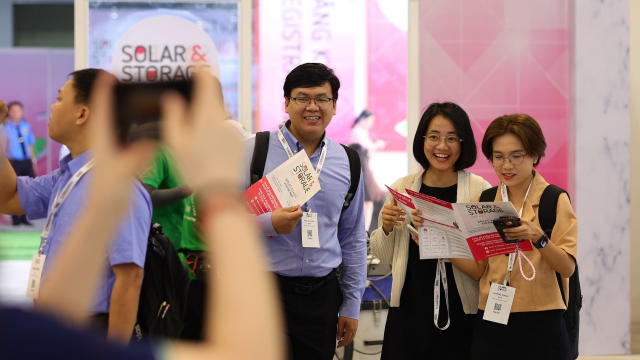Business
More chances for Vietnam to finance sustainable development
In support of the Vietnam Government’s aspiring climate goals and COP26 commitment to become a net zero economy by 2050, HSBC Vietnam has announced its commitment to arranging up to $12 billions of direct and indirect sustainable financing for Vietnam, and the corporate sector in Vietnam by 2030.
The bank, in its letter to the Government of Vietnam, has expressed its plan to financially and expertly back corporates’ promising and critical green and sustainable projects in Vietnam, which play a vital role in decarbonizing the country’s economy.
This forms part of HSBC’s broader net zero pledge to help customers transition their business models and decarbonise by prioritising $750 billion – $1 trillion in finance and investment by 2030.
According to HSBC’s report “Tackling the next crisis”, Ho Chi Minh City is among many cities in Asia (besides Mumbai, Shanghai, Bangkok and Jakarta) that are being increasingly threatened by rising sea levels.
World Bank also warned that Vietnam is one of the top five countries likely to be affected by climate change, adding the forecast that climate change will reduce the country’s national income by up to 3.5 per cent by 2050.
To reach its net zero target by 2050, Vietnam needs to significantly invest in renewable energy and green infrastructure. HSBC has seen a huge surge in its activity as sustainability in Asia shifted gear in 2021. It is a key goal for HSBC Vietnam to help to build a thriving and resilient future for Vietnam and its business community.
IFC provides $30 million fund to waste-to-energy plant in Bac Ninh
Tim Evans, CEO of HSBC Vietnam, said that: “The Vietnamese Government has clear ambitions to tackle climate change through both green finance and technology transfer. These commitments give the private sector more confidence to borrow and invest.”
HSBC Vietnam will mobilise funds from local and international financial markets to provide a wide range of sustainable solutions in green finance, debt finance, supply chain, trade, green deposits and investment products.
HSBC incorporates prudent risk assessment and international green finance standards in providing these solutions.
“With the Government’s dedicated support and direction, the readiness of corporate and individual clients in Vietnam and HSBC’s significant international knowledge and experience in sustainable finance, I am very confident that together we can all make a material difference to Vietnam’s ambitions to combat climate change,” he added.
Sustainable debt issuance reached $1.2 trillion globally in the first nine months of 2021. Asia Pacific accounts for 19 per cent of this and HSBC research shows there is more demand from issuers to come.
According to HSBC’s sustainable financing and investing survey 2021, some 73 per cent of Asia issuers say they expect their company to actively seek advice on green, social or sustainability issues in relation to capital markets transactions in the next 12 months – the highest percentage of any region.
In 2021, HSBC was the biggest underwriter of green, social, sustainable and sustainability linked bonds across Asia, nearly doubling 2020 volumes.
HSBC Vietnam has a track record supporting critical green and sustainable projects in Vietnam, which all contribute to decarbonizing the country’s economy. For examples, it financed Duy Tan plastics recycling factory, launched the first Green Deposit for corporates in Vietnam, and provided short-term green trade finance in wind energy construction for Power Construction Joint Stock Company No.1, a leading Vietnamese EPC company in power construction.
Besides HSBC, Vietnam received over $212 million package from IFC to boost climate-friendly projects, the first green loan of IFC to a bank in Vietnam. About one third of the financing package will be earmarked for climate-friendly projects, creating new options for businesses to obtain green financing at a favorable interest rate.
It recently provided a $70 million loan to HDBank to increase its funding for renewable energy projects in Vietnam.
With the loan, HDBank expects to expand its climate finance portfolio to more than $800 million by 2025, resulting in a reduction of over 54,000 tons of carbon dioxide emissions per year from 2021 – 2025 and thereafter.
In private sector, enterprises of Vietnam has implemented many activities for a long time, contributing to its shifts to a low-carbon economy.
For example, founded in 2019, nine leading FDI and Vietnamese companies having high prestige from consumer goods, packaging, retail, and import industries, jointly established Packaging Recycling Organization Vietnam (PRO Vietnam).
It aims at making Vietnam green, clean, and beautiful by promoting a circular economic model through more accessible and sustainable packaging collection and recycling process.
Nestlé in Vietnam, including Nestlé Vietnam and La Vie company - members of PRO Vietnam, recently announced its commitment to plastic neutrality by 2025.
It also signed an MoU with the Vietnam Environment Agency, with the aim of promoting propaganda activities, disseminating and raising awareness about environmental protection, and promoting activities on sustainable packaging management.
Saigon Co.op, another member of PRO Vietnam, has stopped using plastic straws since April 2019 at more than 600 stores nationwide, and replaced food packaging plastic bags with fresh banana leaves.
These actions mark Saigon Co.op as the first retail chain in Vietnam not selling plastic straws, opening a new campaign to protect the environment through consumer behavior on modern retail channels.
How companies are transitioning in circular economy
Michelin leads the smart mobility revolution with data and AI
Michelin is undergoing a strong transformation by applying AI and smart analytic, helping lead the smart, safe, and sustainable mobility revolution in the Industry 4.0 era.
LG Innotek secures $200 million IFC loan following revenue drop
LG Innotek Vietnam Hai Phong secured a $200 million IFC loan as revenue slows, aiming to expand camera module production while meeting sustainability targets.
Leading with empathy in Vietnam’s billion-dollar investment flows
For Koen Soenens, Sales and Marketing Director at DEEP C, empathy is a compass that guides major deals, the way a leader builds a team, and the ambition to create a sustainable industrial zone that carries a Vietnamese identity.
Taseco Land’s new logo marks a new growth trajectory
Taseco Land has shifted its listing to HOSE and introduced a new upward-pointing arrow logo - a visual statement of its strategy to raise capital, expand its land bank, and strengthen its standing in Vietnam’s real estate sector
SAP positions Vietnam as key R&D hub with €150 million investment
Located in the heart of Ho Chi Minh City, SAP Labs Vietnam is the second SAP Labs Network hub in Southeast Asia, following Singapore and is one of 20 countries that have SAP Labs globally.
Solar & Storage Live Vietnam returns, leading sustainability and innovation in energy sector
Solar & Storage Live Vietnam event has been running since 2017 and the 2025 edition will be the biggest yet.













































